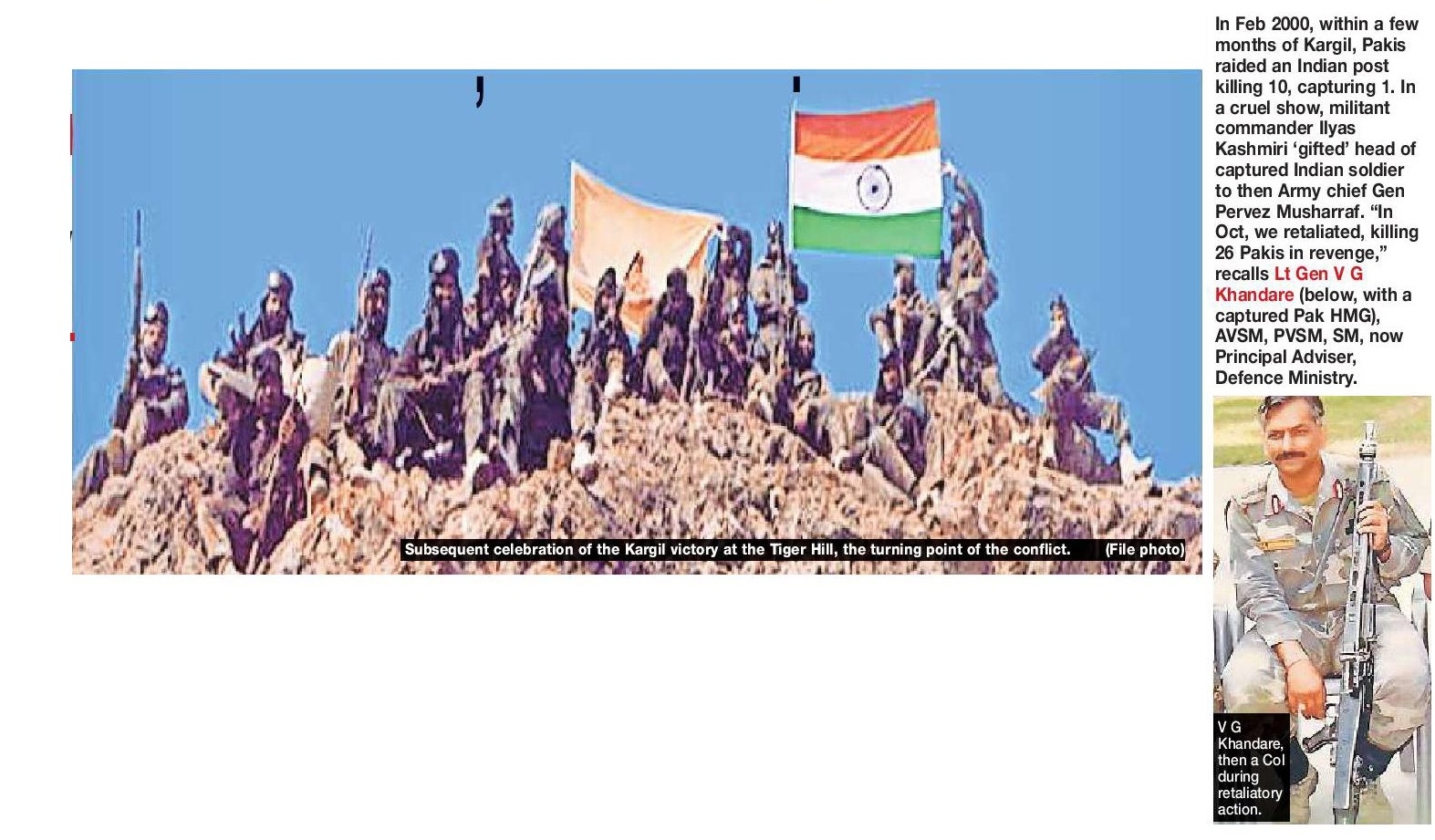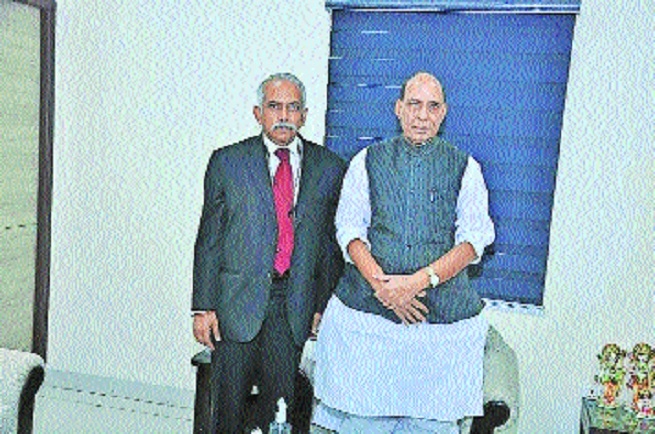‘Many Kargils happened, many will happen. We are best prepared.’
| Date :18-Jul-2024 |

By Kartik Lokhande :
Kargil was not just a military conflict that India won, it was a moment in the country’s strategic defence, a lesson to be remembered eternally. Twenty-five years later, we present a fresh perspective as well as traditional story in this serial recall. - Editor
“Many Kargils happened. Many will happen. Indians, particularly the young ones, need to
understand that we cannot trust Pakistan. As far as preparedness of the Indian Army is concerned, we are best prepared to deal with
situations,” asserts Lt Gen Vinod G Khandare, PVSM, AVSM, SM.
In June 1999, he was a Colonel. Then, Col V G Khandare was Commanding Officer (CO) of 14 Garhwal Rifles. Today, he is still serving the nation in the capacity of Principal Adviser to the Ministry of Defence. He has taken upon himself the task of educating the people with perspectives on
comprehensive national security. An interaction with him reveals not only his role in action during the Kargil War of 1999 and after, but also offers a perspective on
security awareness.
In May 1999, as CO of 14 Garhwal Rifles he was posted in Nowshera Sector.

Lt Gen Vinod G Khandare (Retd), PVSM, AVSM, SM with Defence Minister Rajnath Singh.
A leader par excellence he led his men in the attack on Samani Valley where the Indian men in uniform destroyed the terror camp. In that attack, 64 terrorists were eliminated and 24 were injured. This action took place on May 30, 1999. Though the actual war took place in Batalik, Drass and such areas, it was of crucial importance to prevent Pakistan’s movement to the heights held by the infiltrators. Hence, the Indian soldiers mounted attacks in Nowshera, Rajouri, Poonch, Baramulla, and Kupwara Sectors.
Though the Kargil War ended with ceasefire on July 26, 1999, Lt Gen Khandare feels that it was not just a three-month war. “Did it
really end on July 26, 1999? Within a few months, in February 2000, Pakistanis raided Ashok Post killing 10 and capturing one alive from Maratha Battallion in our Brigade,” he recalls.
A militant commander Ilyas Kashmiri ‘gifted’ the head of the captured Indian soldier to the then Pakistani Army chief General Pervez Musharraf, who reportedly gave him reward of Rs 1 lakh.
“How could we remain silent? In October 2000, we raided Pakistani post, killed 26 of their men. After all, we had to avenge the death of our men,” says Lt Gen Khandare with a firmness in voice. Pakistan has resorted to misadventure
several times since Kargil War of 1999. Many cross-border raids
have taken place since then.
More recently, Kathua incident happened in which Indian soldiers were killed in action. All such incidents prove that Pakistan can never be trusted.
According to Lt Gen V G Khandare (Retd), India always tried to maintain cordial relations with Pakistan, but it is not in the latter’s culture to reciprocate. When he was Prime Minister, Atal Bihari Vajpayee had started Lahore bus service with an intention to have good relations with Pakistan. However, Lt Gen Khandare says, Pakistan responded with Kargil War of 1999. When Narendra Modi became Prime Minister, he took a surprise stopover at Lahore and met the then Pakistan Prime Minister Nawaz Sharif. Again, this cordial gesture of India was paid back with attack on Pathankot air base. “These happenings after a gap of years show one thing -- whenever India takes initiative for normalcy in relations, Pakistani Army or terrorists plan some attack on India.
Hence, I say, many Kargils happened and many will happen. We simply cannot trust Pakistan,” he asserts.
As far as Silver Jubilee year celebrations of India’s victory over Pakistan in Kargil War of 1999 is concerned, Lt Gen V G Khandare wonders, “What is the educational value of 25 years celebrations, unless ordinary Indians and especially youngsters know that the war has not ended.” Asked about how better prepared the Indian forces are since the 1999 war, he replies clearly and confidently, “We do not have better in our dictionary. We are best prepared!” Elaborating on this point, he adds that no artillery fire does not mean that there is peace. Since the operations have continued, the preparedness and performance of the Indian forces has to keep improving without a break, he concludes before moving on for an awareness lecture.